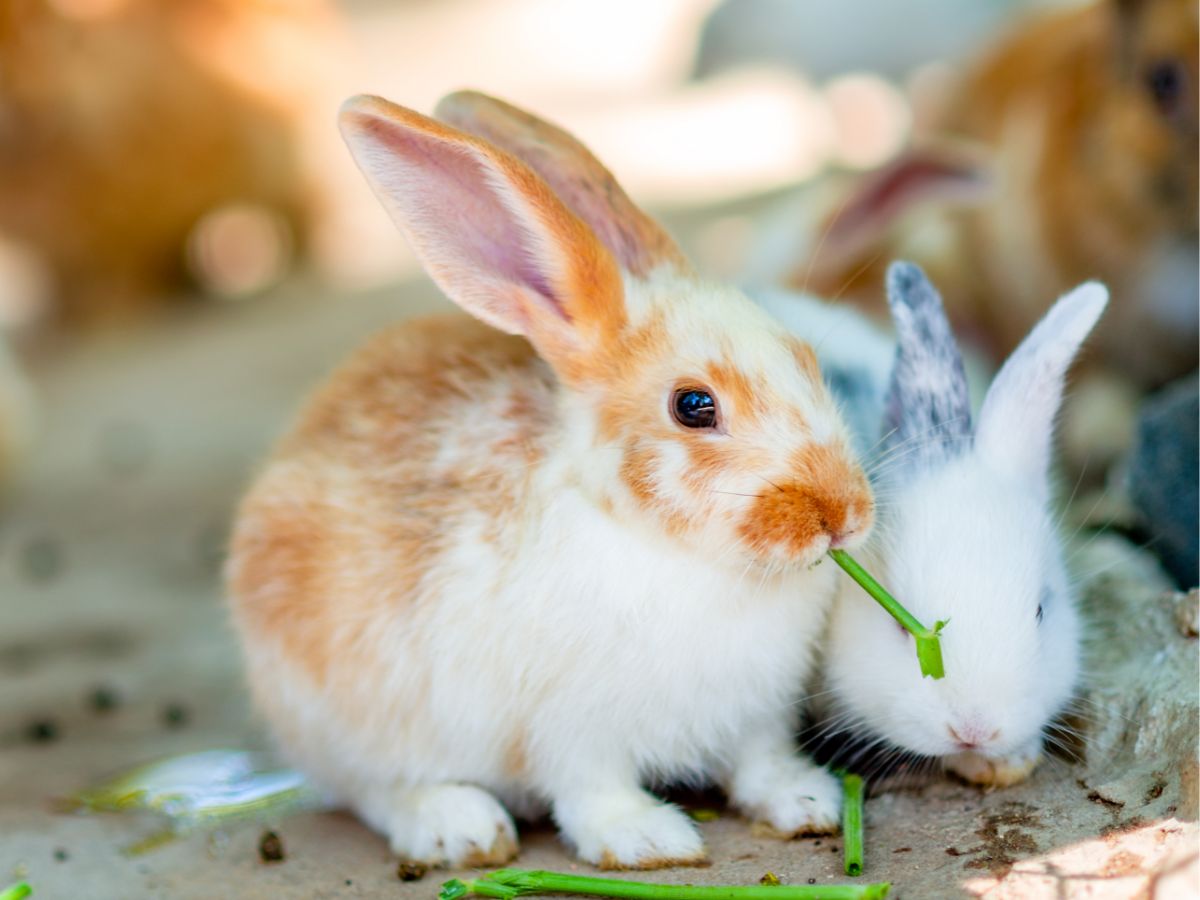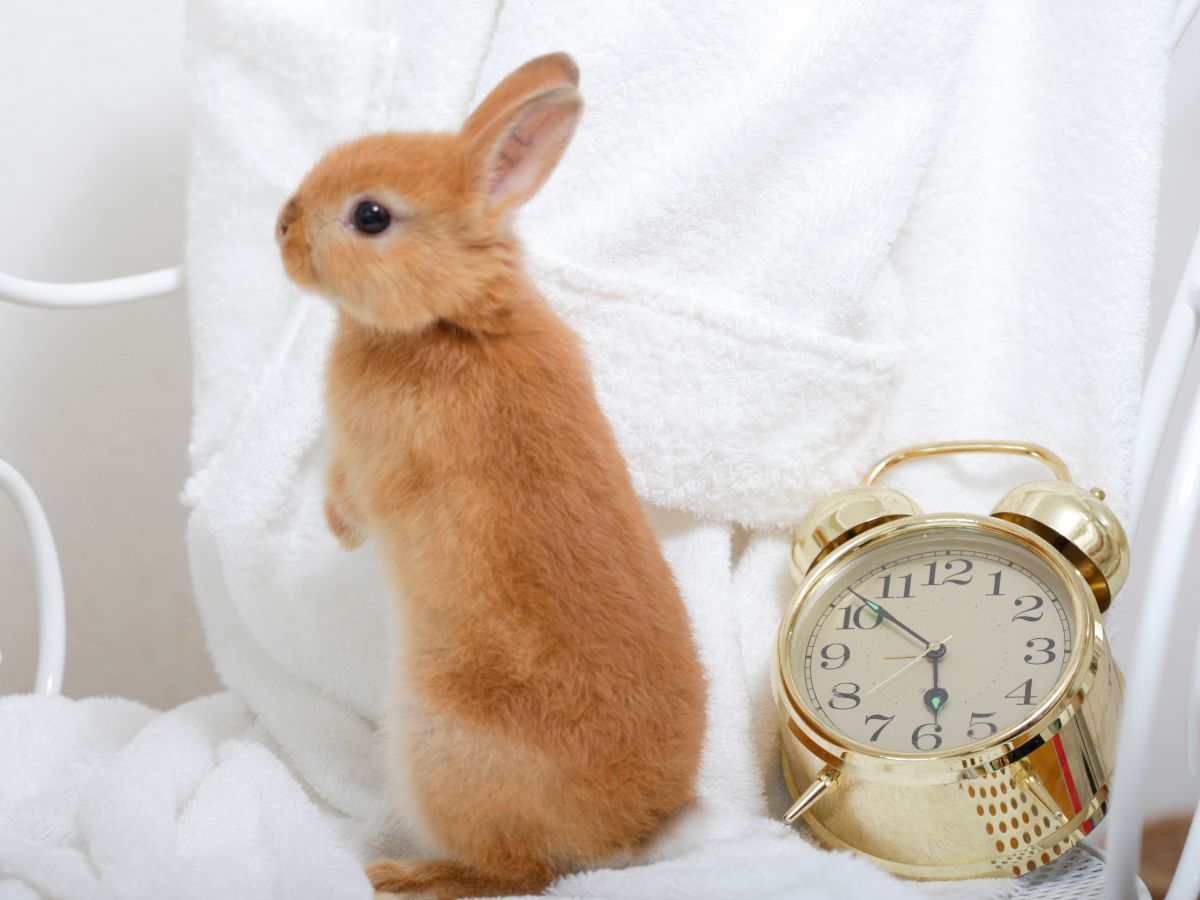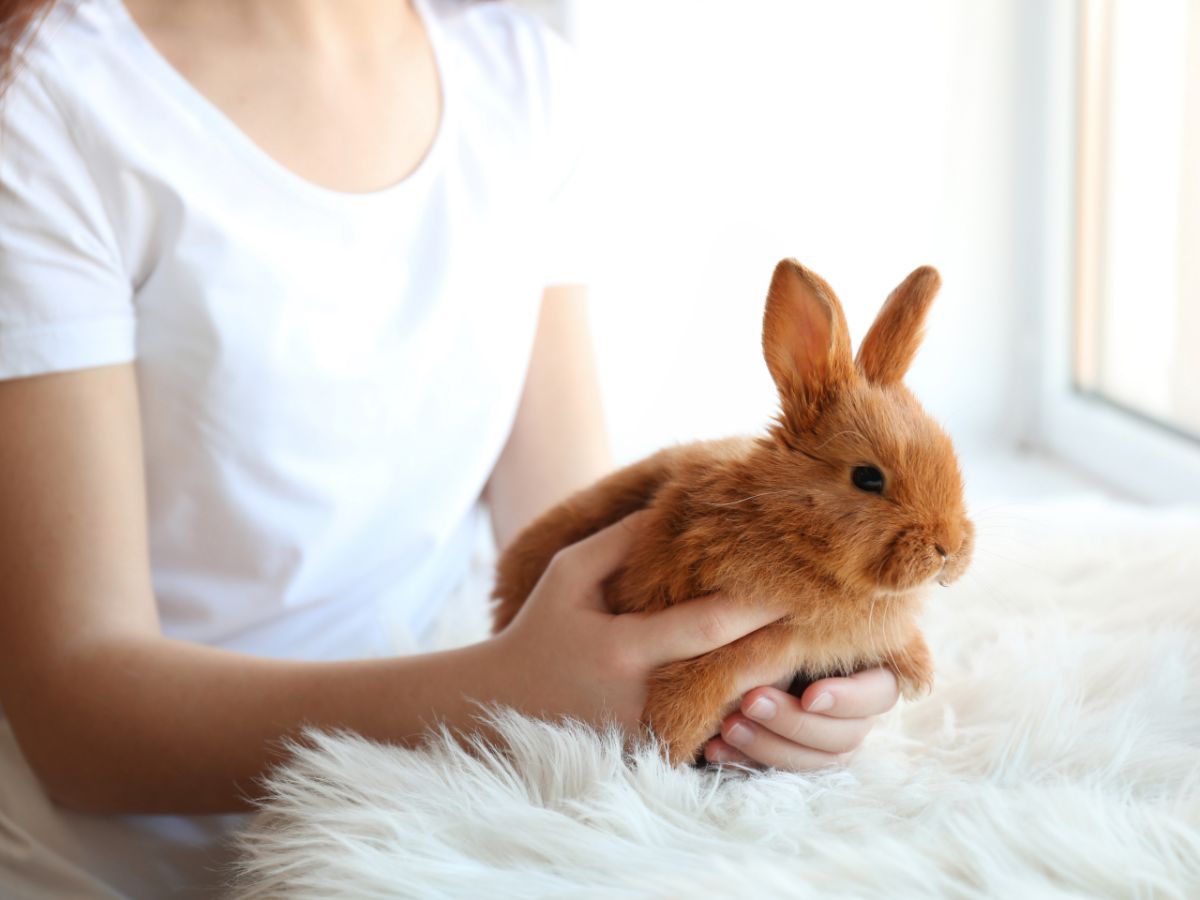We’ve all seen the countless carrot-eating bunny cartoons, but do rabbits really eat carrots? Are there other vegetables they can eat, and more importantly, what are the best vegetables and fruits for rabbits?
Leafy greens that are low in oxalates are safe for your bunny to consume daily, along with hay. High-oxalate and non-leafy vegetables should be limited to 2 Tbsp per 2 pounds of your rabbit’s body weight, while rabbit-safe fruits should be treated as a snack and not fed daily.
Including fresh vegetables and fruits in your rabbit’s diet has many benefits, most notably a happy bunny! This article will examine the best vegetables and fruits for your rabbit, how much they should eat, and a list of vegetables and fruits that are toxic to rabbits.
Contents
The Best Vegetables And Fruit For Rabbits
A rabbit’s diet should comprise mostly hay (about 85%), 10% leafy greens, and 5% pellets. The 10% leafy greens include all edible, rabbit-safe greens, vegetables, and fruits. While hay is rich in fiber, vitamin A, D, and many other vitamins, fresh greens add nutrients and moisture to your rabbit’s diet.
The moisture in fresh vegetables and fruit promotes healthy bladder and kidney function. Not to mention the creature comfort that various fresh foods bring, in addition to your rabbit’s seemingly boring hay. However, some vegetables and fruits are better for your rabbit’s needs than others.
What Vegetables Are Best For Rabbits?
When it comes to nutrients, not all vegetables are equal. The best vegetables for rabbits are high in fiber, vitamins, and nutrients and low in carbohydrates, sugars, and other harmful substances.
Oxalic acid, or oxalates, is a compound in some vegetables that can be dangerous to your rabbit when consumed in large amounts. Luckily, oxalic acid is harmless in small quantities, so there is no need to completely remove these otherwise nutritious vegetables from your rabbit’s diet.
Rabbits can manufacture vitamin C inside their bodies, so unlike humans, they do not need to consume foods rich in vitamin C to increase their vitamin C levels. Studies indicating whether or not an excess of this vitamin is harmful to rabbits or if rabbits absorb vitamin C found in foods at all are inconclusive. To be safe, you can limit vegetables and fruits high in vitamin C.
Low Oxalate Vegetables That Are Safe For Rabbits
Vegetables low in oxalic acid are safe to feed your rabbit daily, either in one meal or divided into two or three portions.
The following vegetables (leafy greens) should make up the majority of your rabbit’s fresh foods:
- Lettuce (romaine, frisee, red, green, mache)
- Carrot tops
- Bok Choy
- Turnip greens
- Kale (all varieties)
- Cucumber (leaves only)
- Watercress
- Wheatgrass
- Endive
- Escarole
- Chicory
- Radicchio
- Yu Choy
The following herbs are also low in oxalates and can be consumed daily:
- Coriander/cilantro
- Basil
- Rocket/arugula
- Mint
- Dill
- Fennel
- Borage leaves
- Dandelion
- Plantain
- Stinging nettle
High Oxalate And Other Vegetables That Are Safe For Rabbits
Vegetables with a higher oxalic acid count can still be healthy and nutritious for your rabbit, but they must be limited to avoid oxalate poisoning. Only include one of these vegetables with the low-oxalate greens and rotate them weekly.
High oxalate leafy greens that are safe for rabbits:
- Spinach
- Mustard greens
- Parsley (flat-leaf and Italian)
- Swiss chard
- Mustard greens
- Radish tops
Other vegetables your bunny can eat in limited quantities:
- Cabbage
- Broccoli
- Carrots – carrots are high in sugars
- Celery
- Bell peppers
- Zucchini/courgette
- Summer squash (patty pans, zucchini)

What Are The Best Fruits To Feed Rabbits?
Fruits are high in sugary starches and should therefore be limited. As rabbits are extremely active, they love high-sugar foods! While this would be fine in the wild, where they are more active, house rabbits do not need that much sugar.
Most fruit seeds are toxic to rabbits, so to be safe, remove all seeds when you give your rabbit fruit.
The following fruits are considered safe for your rabbit:
- Apples
- Berries (all types, but they particularly love blueberries)
- Grapes (fresh grapes only, seeds removed)
- Pears
- Bananas
- Apricot
- Peach
- Plums
- Mango
- Melon
- guavas
- Pineapple (skin removed)
How Much Leafy Greens Can Rabbits Eat Per Day?
The recommended daily allowance for fresh greens (vegetables and herbs) for rabbits is 10% of their overall food intake. As a rough guide, this would mean about 1 cup of low-oxalate leafy greens per day.
Change the leafy greens every week to keep your rabbit happy and provide a variety of nutrients. You should always introduce new vegetables and fruits slowly and one at a time so that your rabbit’s body has time to adjust. Introducing new foods slowly also allows you to easily pinpoint which foods may be causing them issues like a runny stool or which foods they like and dislike.
How Often Should Rabbits Eat Vegetables And Fruits?
Fruits should be limited to once or twice a week, in very small portions of 1 tsp of fruit per 2 pounds of rabbit. Fruits are best given as a treat and should not be included in your rabbit’s 10% fresh green allowance.
For vegetables, the recommended allowance is 1 Tbsp of vegetables per 2 pounds of rabbit. So, a 5-pound rabbit can eat 2.5 cups of leafy greens and 2.5 Tbsp of other veggies like carrots or parsley.
However, while the 2 Tbsp of vegetables are considered safe, it is best to not feed these veggies daily. Twice a week or every other day will ensure your rabbit is living its healthiest life and lower obesity and digestive issues.
Toxic fruits and vegetables for rabbits
Now that you’re clued up on your rabbit’s preferred fruits and vegetables, you may wonder if there are any vegetables and fruits they shouldn’t eat. Just like some plants are toxic to rabbits, unfortunately, so are certain vegetables and fruits.
The following vegetables are considered toxic for rabbits:
- Iceberg lettuce –contains lactucarium, a chemical found in some plants that are toxic to rabbits
- Mushrooms
- Beans
- Avocado – contains persin that, while safe for humans, is toxic to rabbits
- Potatoes
- Rhubarb
- Tomatoes
- Onions
- Leeks
- Chives
- Cauliflower – can cause bloating and digestive issues
- Chard – like cauliflower, chard causes bloating in rabbits
Conclusion
Your rabbit can safely enjoy a variety of vegetables and fruit alongside hay and pellets. Low oxalate vegetables are great to feed your rabbit daily, but vegetables with higher oxalic acids should be added in rotation in limited quantities.
Many fruits are also safe for rabbits, but only in small portions as they are high in sugars. However, due to fruits’ high sugar content, they make great treats for your rabbit!




